Idiogen | Interview | ‘Drive You Mad’
Idiogen formed on the Adriatic coast back in the 80s and was the first band in former Yugoslavia to release albums entirely in English. The band was performing a fusion between heavy guitar rock and wah-wah fuelled psychedelic rock.
In the following interview we will discuss the band with Andrea F, the mastermind behind Idiogen. The band recently decided to release a video for an old track, ‘Drive You Mad,’ the title track from their third album from 1987 which was recently remastered from original master tapes. The video was directed by Russian animation collage artists and is based around the concept of journey through photos. The band will soon announce more news about the double upcoming remastered compilation of their material.
“Thinking about a new video for the brilliant remaster Pete Maher did of the title track of our final album, I was reminded of its topic – the craziness and insanity of trying to capture a moment, to catch and stop time. Photography is one beautiful human effort in this direction, and going through someone’s old photo album is one of the very few actual, legitimate forms of time travel we have. I found Kseniya, a super talented young video collage maker from the Faculty of Television in Samara, Russia, and she was inspired to animate a bunch of Idiogen photos and some of the highlight key points of the lyrics, creating a safe trip through Idiogen’s history up to now, to our most recent encounter and recording, a trip that won’t drive you mad, but that we hope you might enjoy.” – Andrea F
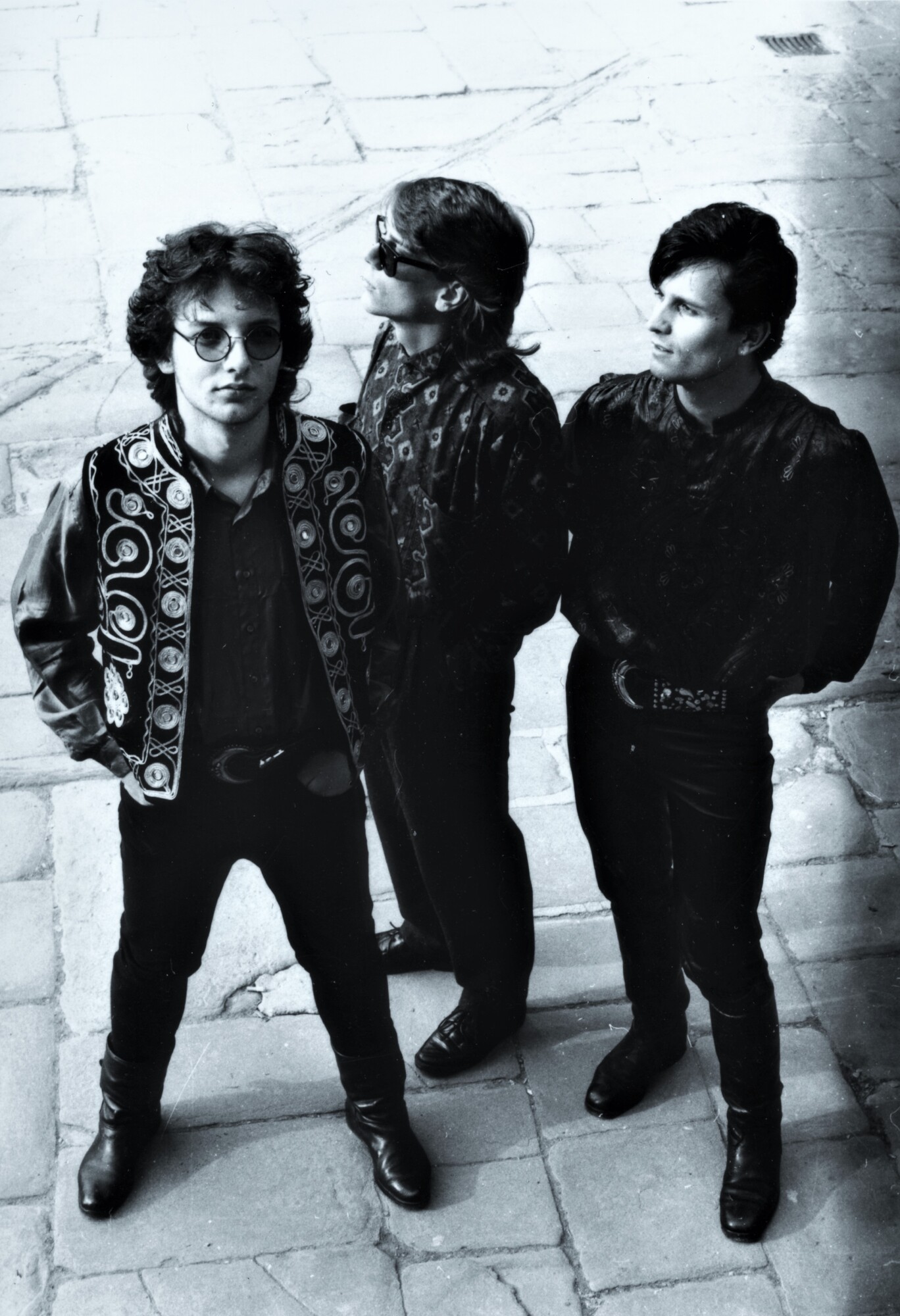
“A matter of being able to paint guitar soundscapes”
Would you like to discuss your upbringing and some of the early influences? What are some of the most important players that influenced your own style and what in particular did they employ in their playing that you liked?
Andrea Flego: I was born to an Italian speaking family in Capodistria, part of the Italian minority in Slovenia, and I guess the most formative part of my upbringing was a trifecta of unusual: early and late childhood in what back then was Yugoslavia, so just into the so-called “Iron Curtain” zone, politics and lifestyle; an almost 7 years stretch of living and attending English schools in Ghana, Africa, where my dad set up and managed the legendary Tomos motorbike factory; and then some 15 years of travelling and partly living in Italy, again because my father had started working there, in Bologna. So it was a life of seeing and experiencing contrasts plus cultural and social diversity – well before it was a buzzword.
Of course, this all comes with a price: you don’t really fit in anywhere, it’s harder to build friendships or routines, so the guitar became my refuge.
In terms of music and playing, my most mind-altering influence and biggest inspiration was and still is the immense Jimi Hendrix. To me, that’s an expression of incredible musical freedom, of expansion of the blues vocabulary, of timeless songwriting and really amazing psychedelic production tricks and soundscapes. Right behind that, Pink Floyd, because of the sounds and Roger Water’s concepts and lyrics which had a major impact on my thinking, plus Gilmour’s carefully sonically sculpted melodic blues filled playing and Syd Barrett’s hypnotic guitar noises and only apparently simple, very British and very literary songwriting.
There were also a couple of other artists that influenced or perhaps helped liberate my idea of what could be done and expressed in a band, like The Doors, fusing poetry, blues, rock and psychedelia, or Led Zeppelin and early The Police not so much for the songs or guitars but for the power of the rhythmic aspect and the importance of the drumming.
If we had a time machine, what kind of records, posters, fanzines would we find in your teenage room?
Ha, that’s a very interesting one, never been asked that before! Let’s see…
The complete LP discography of all of the above mentioned artists with some pretty tasty bootlegs of most of them, some rock and singer-songwriter Italian records bought by me plus a bunch of vintage pop inherited from my parents, several “Masters Of The Blues” type of compilation LPs, some of my parents’ classical music LPs, some Procol Harum and Robin Trower, as I liked their symphonic take on 60s rock and I found Trower was bridging the Gilmour and Hendrix styles in a way I felt akin to. Fanzines – definitely Tommy Magazine, a quite legendary initially The Who inspired Italian fanzine founded and run by my later friend and Idiogen publicist, journalist Mauro Missana; from the USA Spin (which was still more of a fanzine than a major mainstream magazine back then) and Buzz and old copies of Crawdaddy; from Italy Urlo and Buscadero, and some Yugoslavian magazines like Džuboks and Rock.
The posters I remember very precisely: a huge, beautiful poster photo of Hendrix at the Royal Albert Hall in 1969, a small black & white Pink Floyd with Syd Barrett photo and a big ‘Wish You Were Here’ era concert photo poster, and a fabulously elaborate Rick Griffin artwork reproduction for the Fillmore in San Francisco alongside Blue Cheer’s ‘Vincebus Eruptum’ album cover. Oh, and inside my wardrobe door, a naked centerfold poster of Amanda Lear, Salvador Dali’s muse and Roxy Music’s cover model, very successfully, blondly and gorgeously proving there was zero truth to the publicity stunt rumour that she was a transvestite male.
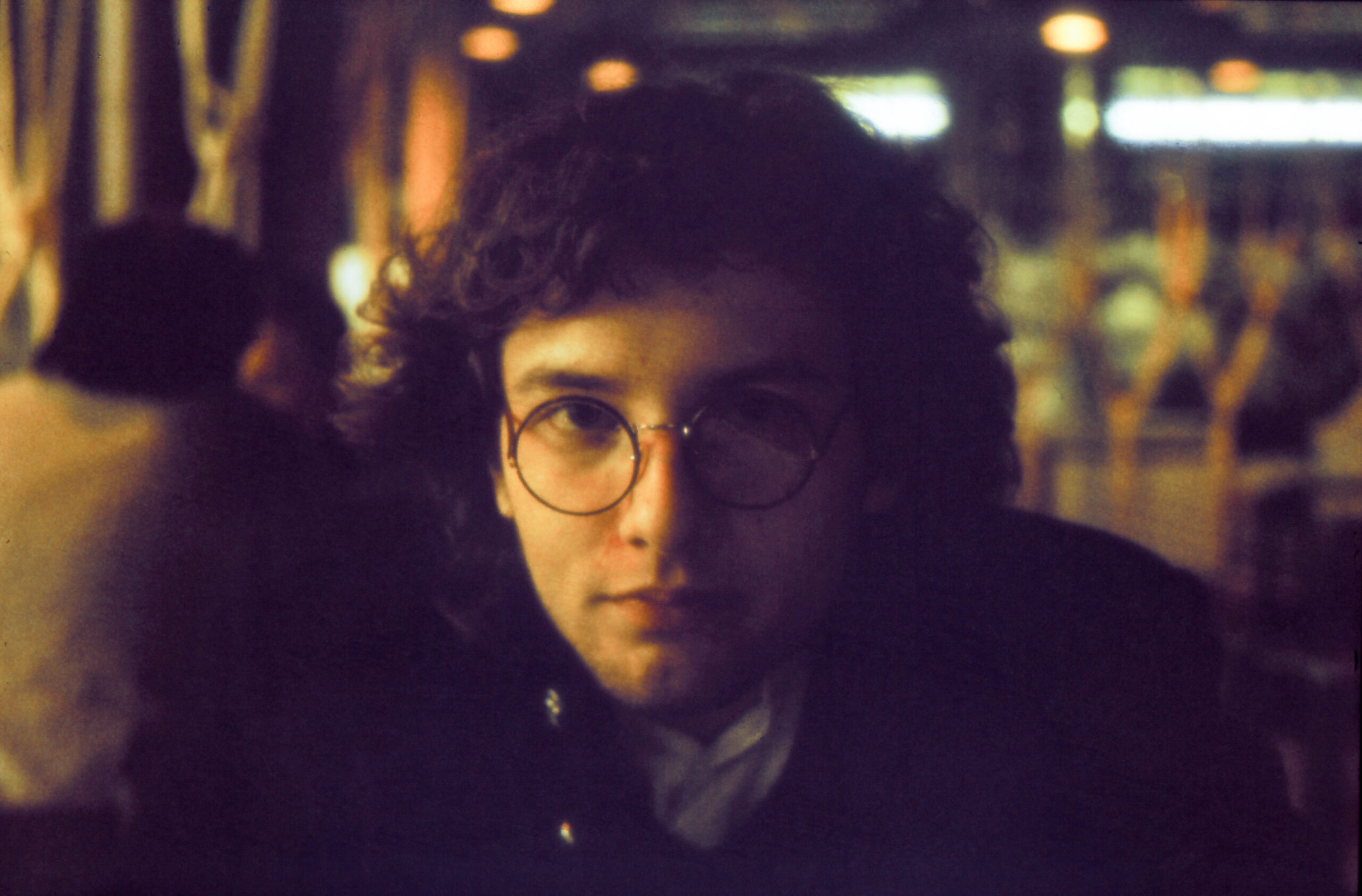
Was there a certain moment when you knew you wanted to become a musician? What was it?
Yes – I was 9 years old when I picked up a guitar, a black electric Eko, initially inspired by watching the kids in the Partridge Family TV series band, but by my 12th birthday I very clearly realized I had something to say with it and that this was now my world, a world I could create, and one that would travel with me, unlike schoolmates or neighbours or friends.
“It wasn’t easy to find like-minded musicians around me”
Where did you meet other members of Idiogen and when was that? Did the lineup change during the years?
Indeed, there were quite a number of changes. This part of Europe, and even more so this specific seaside corner of Yugoslavia, was not really very big on alternative psychedelic rock or on blues, there were many musicians, most older than me and some very successful, but it all had to do either with 60s legends that had managed to emulate and import the beat generation type of phenomena, or with this whole scene of bands playing for tourists, in seaside hotels and dancing terraces, doing covers of hits past and present but only occasionally attempting a pop and radio friendly song of their own. I felt quite alien to that, my mind was looking at the legendary names I told you about as my influences, and at the UK 80s indie label scene. So, I searched for bandmates among my few friends and many acquaintances, rather than in the already established musician circles. It was always meant to be a power trio, our first line-up in 1981 was with my best friend, a Hungarian guy called Andras Toth on bass and an almost-certain-I-want-to-be-a-drummer (in the long run, he didn’t) schoolmate, Gianni Miglioranza. We soon changed the drummer and found Damijan Ličen, who was really talented. We did some very early recordings of two songs at Radio Koper, who had this initiative of documenting local bands. It was quite a traumatizing experience, as they assigned us a “staff producer,” a much older guy who knew or cared zero about our music, so it was all rushed and frustrating. I guess that’s when I decided I’d better learn and get good at this producing thing myself! Our first proper line-up, after Andras went back to Hungary was with Damjan Barut on drums, and Žare Pavletič on bass – they both also played in the embryonic version of now legendary Slovenian band Zmelkoow, we actually shared a dusty rehearsal room in Žare’s folks still being constructed house. This was the trio that recorded our first cassette only release, and part of the first album. Later, the damn compulsory military service ripped the band apart, I was a couple of years younger than the others so it didn’t affect me yet, so the band continued with what I believe was our best, musically most skilled and most mature line-up, first with Drago Hrvatin on bass in late 1985, and then in early 1986 with Max Felix on drums – Max, who to this day is one of my very best friends, is from Trieste, Italy. As I said, it wasn’t easy to find like-minded musicians around me, so I just thought it was natural to reach out across the border and look into Trieste, a far bigger city. Apparently, this was pretty unique and daring, from the point of view of musicians on both sides of that much feared border, I was later told. But I was used to traveling, I spoke both native Italian and English, and I felt Idiogen’s music didn’t actually have a local scope or connotation, so that felt simple enough to me.
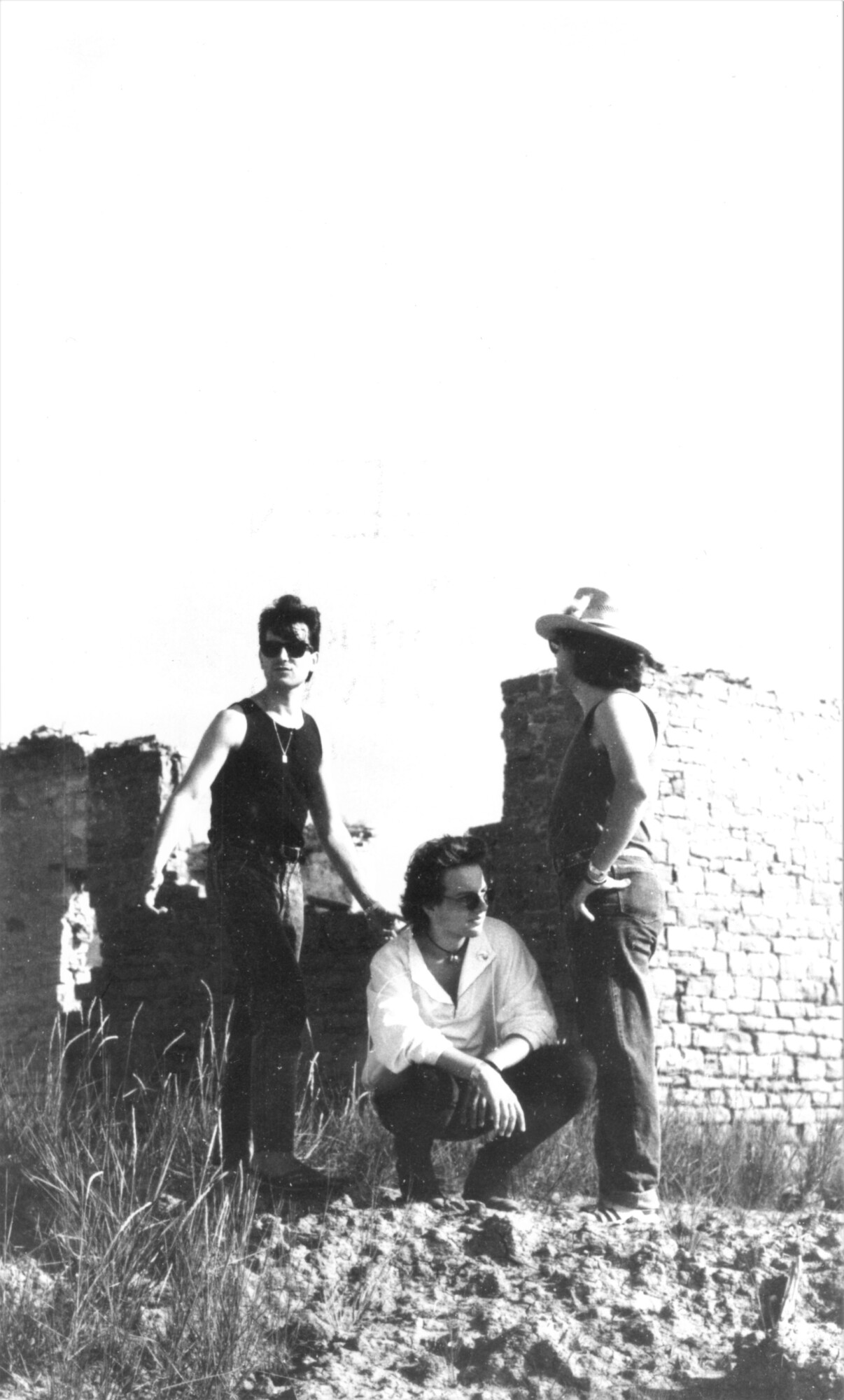
There must be an interesting story behind the band’s name?
You could say so, I guess! I came up with it walking down the stairs of my parents’ apartment block one sunny springtime afternoon in 1981, almost before the band actually existed. I was pondering on how easy it is for people to label things or people as “idiot” or “genius” based on prejudice or misunderstanding or plain old ignorance. It was a hot topic for me, as I said travelling and relocating exposes you to different cultures, customs, mentalities and religions, and as your horizons broaden you see that there are many different ways of living life on this planet, so it’s less of a wonder when people don’t seem to get you. And that afternoon I saw a piece of a documentary on television about some Dutch scientist speaking of idiogenesis and “idiogen phenomena”: that’s biological or medical stuff that appears spontaneously, for no apparent reason. I thought “Well so does music” – and that was it, idiot vs. genius meets idiogenesis. We later also liked the fact that people would pronounce it and accent it in different ways depending on which country and language area we were in, they’d ask “How is it pronounced?” and we’d answer “Anyway you want to.”
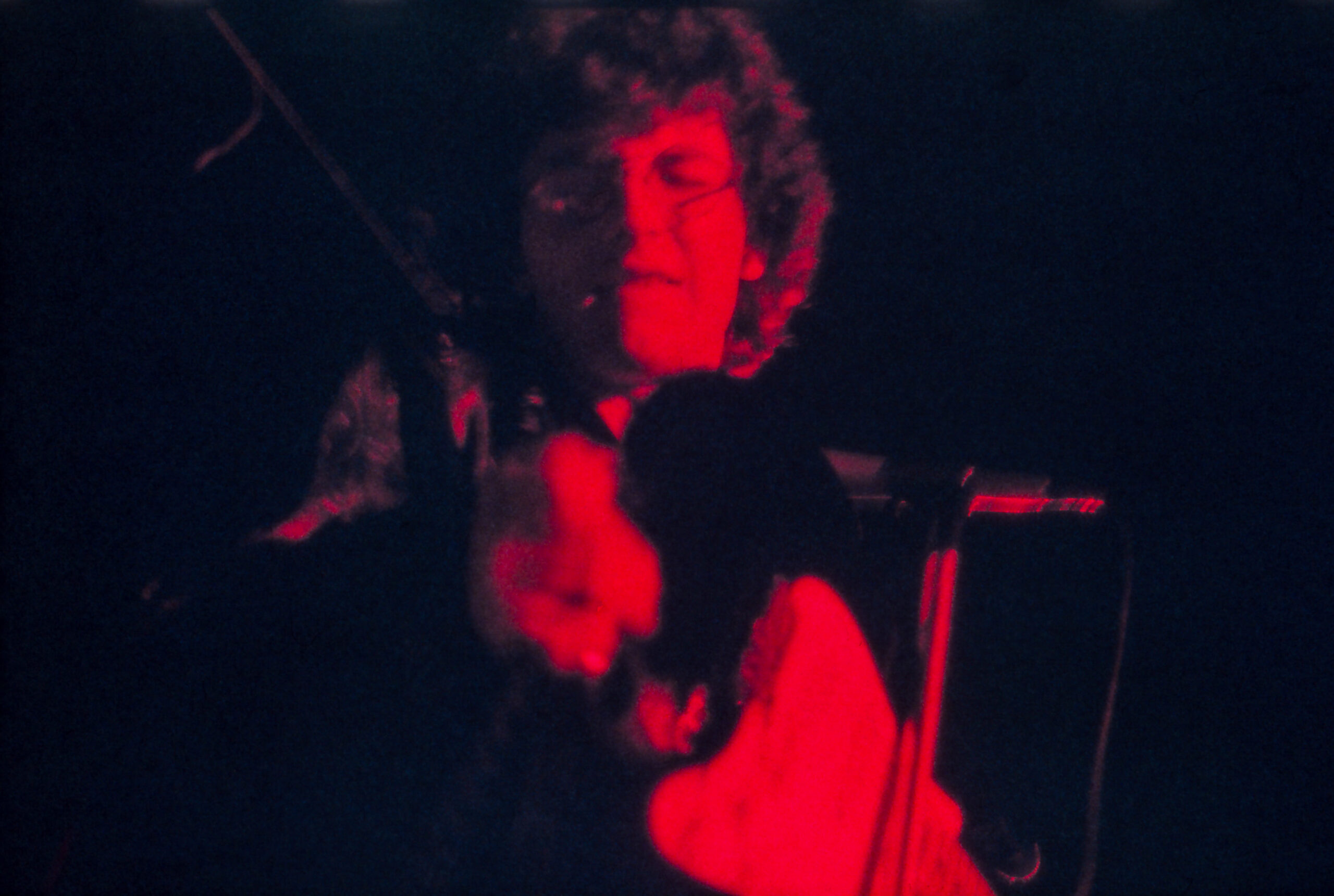
What would you say was the initial concept behind the band?
Aside from this whole thing with the name, for me it was a matter of being able to paint guitar soundscapes while having a place to voice social dissent or at least discontent in lyrics. It wasn’t about love songs or girls, at least not at all in the first place, or we would have taken the far more common cover band route. And of course there also was a pretty simple blues playing and band grooving enjoyment, we all were very into that. We somehow all had the idea that this should best be expressed recorded, in the studio, and presented live in a more free form, with more improvisation and loud experimentation. And this duality, so to speak, somehow fitted well with this duality in the band’s name, now that I think about it.
Tell us about your gear, pedals, effects, amplifiers…
I played a Fender Stratocaster, which of course had to be smuggled across the border from Italy as it was a forbidden import for Yugoslav customs, and in my case it came from Bologna via the trunk of an old Mercedes of a strange guy who covered it in gravel, much to my horror, “to make it look more natural” in case he got caught – I really can’t imagine how he meant to explain that! I also had some other guitars, the old electric Eko which was a Les Paul style guitar, and a black Eko Ranger acoustic, like the one Edoardo Bennato used. My amps were a combination of a surprisingly good Yamaha transistor combo for clean sounds, bridged and switched with a Marshall JCM 800 2×12” combo with two additional 2×12” Fane speaker cabinets. I found that having more speakers and cabinets with less wattage helped get a larger sound area on stage which was better for my extended feedback experiments. On my pedalboard were an original 60s Vox wah wah, which I bought boxed and unused from a guy running Honest John’s record store in London, a very creamy sounding Loco Box distortion, an original Dallas Arbiter Fuzz face which I managed to buy when their old UK warehouses got sold to Crest amplification and they were clearing out the old boxes of leftovers, a Guyatone phaser, an Ibanez flanger, and a Pearl analog delay, which I later replaced with a very futuristic Vesta Fire digital delay featuring extended delay times, modulation and even a tap tempo function. All powered by an amazingly sturdy, crazily over-engineered handmade power supply called “Le Stoned,” custom made by my good friend and eccentric electronics guru Robert D’Ans, a Belgian nobleman living in Piran. Honestly, the one thing I truly wish we’d had, back then, is a tuner pedal. It’s a given and it’s so obvious nowadays, but the Boss tuner pedal was only invented years later… imagine the grief it would have spared us and our audiences!
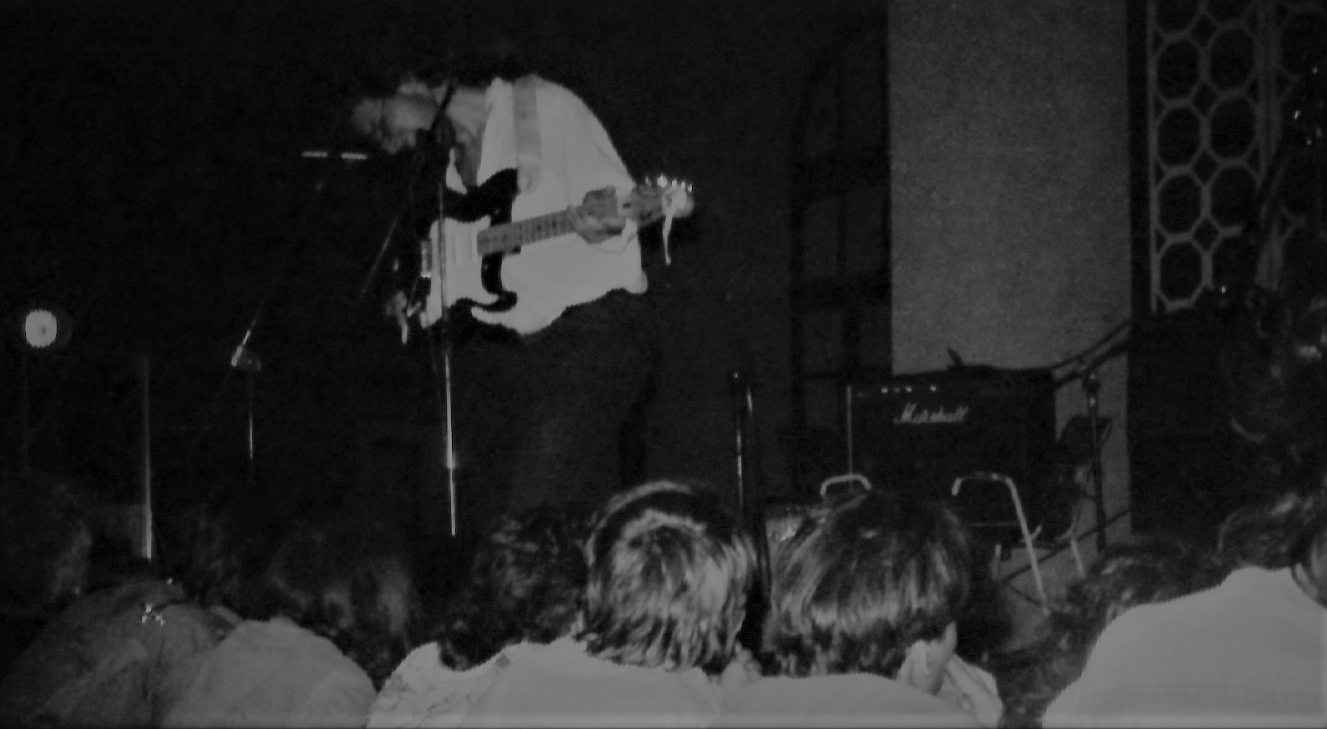
“It was a not so simple matter of finding the factories, convincing them to accept cash payments without too much paperwork, and then smuggling the records and cassettes across the border”
You released your self-titled album in 1985 on cassette via Produkcija MKC Koper and vinyl via Produkcija Slovenija. How many copies of vinyl & tape were pressed? What can you say about Produkcija Slovenia?
Produkcija Slovenija was the brainchild of our manager and my great friend, Boris Furlan, who back then also was in charge of the MKC, the local Youth Cultural Center. He, too, was inspired by the rising tide of independent labels in the UK and in Italy. I think you can safely say it was the very first real, actual indie label in Yugoslavia – I know ŠKUC in Ljubljana was also releasing records and cassettes approximately at the same time, but this one was totally self-funded, and not reserved for projects of any organization, it was actually open to receiving demos and releasing records of bands just because he liked them. And, along with ours, he released some great stuff by artists from all over the country, such as KUD Idijoti, Sexa, Mizar, or Disciplina Kičme.
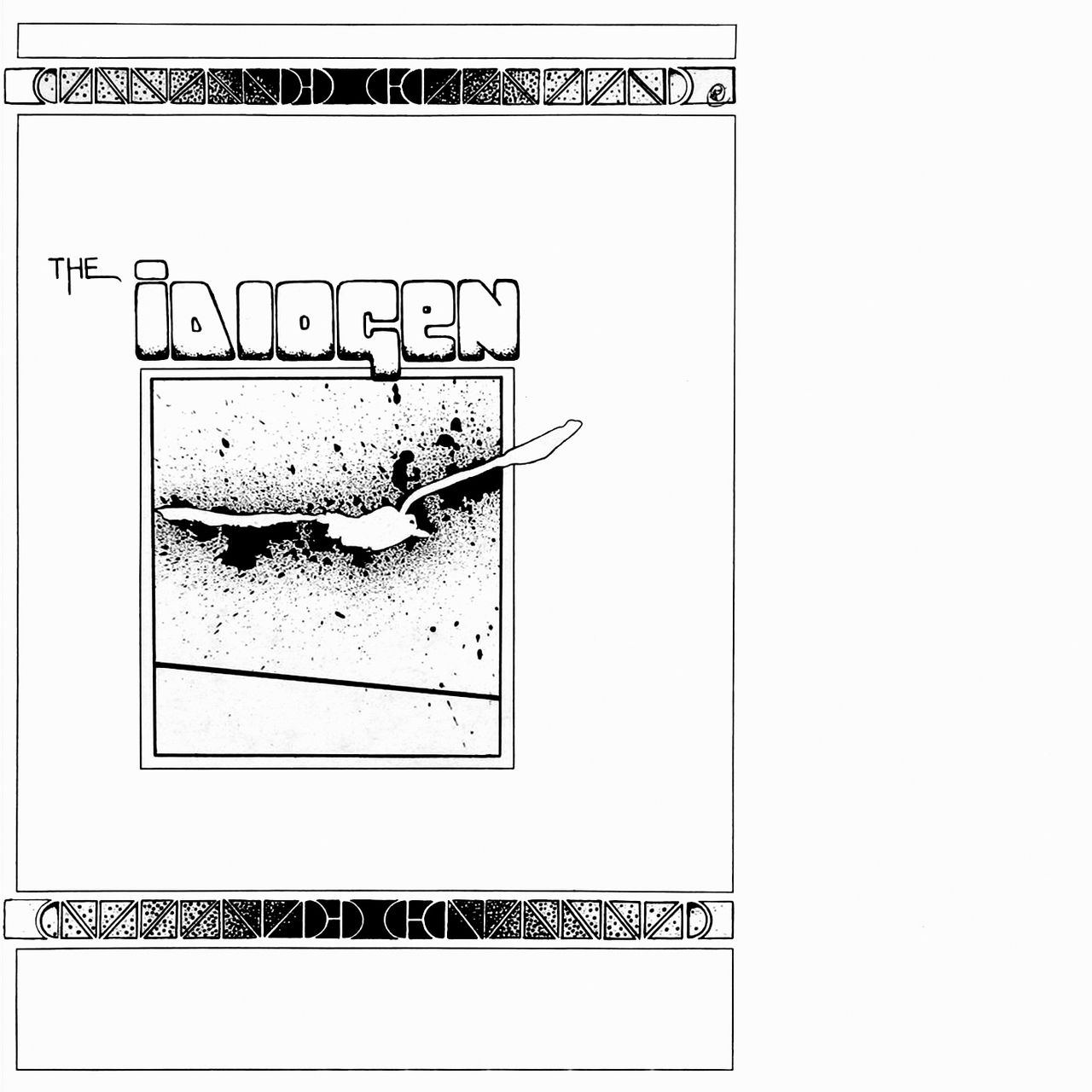
It was such a new thing and such a big deal that Belgrade’s main daily newspaper, Politika, sent over a couple of journalists to run an article on it, and probably to investigate and report to who knows whom, too. I was present during that interview, and there was a hilarious moment when, after all their quite stiff questions, they asked “A gdje su vam pogoni? – So where is your machinery?” expecting that being a label meant Produkcija Slovenija actually owned record presses, tape duplicators, and a vinyl manufacturing plant! In fact, all the releases were being made and pressed in Italy, it was a not so simple matter of finding the factories, convincing them to accept cash payments without too much paperwork, and then smuggling the records and cassettes across the border in their boxes, hidden under groceries in the cars of friends and associates!
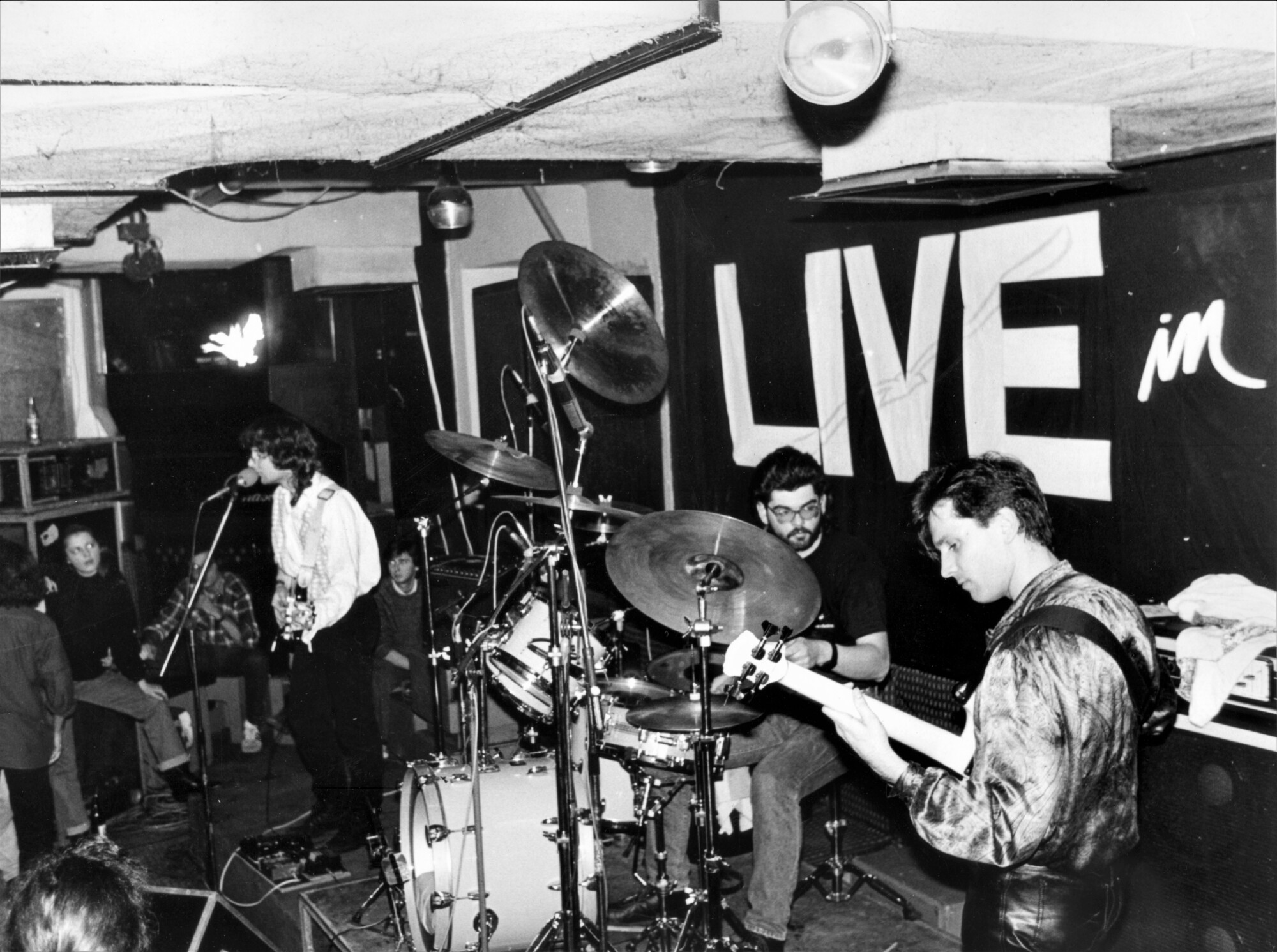
The main Yugoslav major label, Jugoton, which owned a huge factory in Zagreb, only started pressing records for external clients in 1986, so a few other indie labels in Yugoslavia came well later, and were probably inspired by Boris and his endeavours.
If I remember correctly, the album was initially pressed in 1000 copies, and then 1000 more, as we used quite a few to send around the world for promotion and reviews, plus I managed to strike a deal with
Rough Trade Records and Honest John’s in London’ to stock and sell the album as it got a number of good UK reviews, and Boris managed to get it imported in Italy, which was practically a second home base for us. So not many copies, but I’d say well placed! The cassette only pre-album release I honestly don’t recall exactly, but it must have been something like 500 copies, not more, sold only locally or at gigs and just a few went to some magazines and fanzines for reviews.
Where was the album recorded and what are some of the strongest memories from recording and producing it?
We did the first recordings which ended up on the cassette album and partly on the first LP in the private and quite haphazard recording studio of the late Igor Kos, in the attic and first floor of his house, a former school building by a small church in the tiny village of Povir, in the Karst region. Igor, a guy with infinite patience and the sweetest nature, who became my first true recording studio mentor and a dear friend, used to be the guitarist of a legendary 70s pop-rock band called Prizma. We experimented a lot with guitar sounds and the use of natural ambience, I’d stay at his place till the very last bus, and he would then drive me to the station at breakneck speed in his military green Fiat. I remember chasing down some weird beeping sound in a reverb, pulling out the cables from under the carpets and following them all the way down to an abandoned well in the churchyard that he had mic’d up to function as a natural reverb chamber, only to find his delightful little daughter, Jasna, had been having fun throwing stones down that same well and was causing our mysterious bleep! And I remember recording guitar solos while Live Aid was live on TV, in July 1985, we’d marked the running order and schedule on a newspaper and took breaks to watch the artists we were most into performing at Wembley. Quite a moment!
The second part of the album’s songs, with Drago on bass, were recorded at Produkcija Slovenija’s studio, as Boris convinced Igor he’d give him the space and premises if Igor brought down all his equipment. And he did, bought tons of new ones as well and smuggled it down from Germany in a baker’s van. That studio was a less romantic and more professional environment, with a very dead, carpeted acoustic treatment, but with better control room monitoring, so we fine-tuned our recordings far more successfully.
This was all pre-internet and even pre any proper recording magazines or books available to us this side of the world, so a lot of our efforts were guesswork and hands-on experimentation.
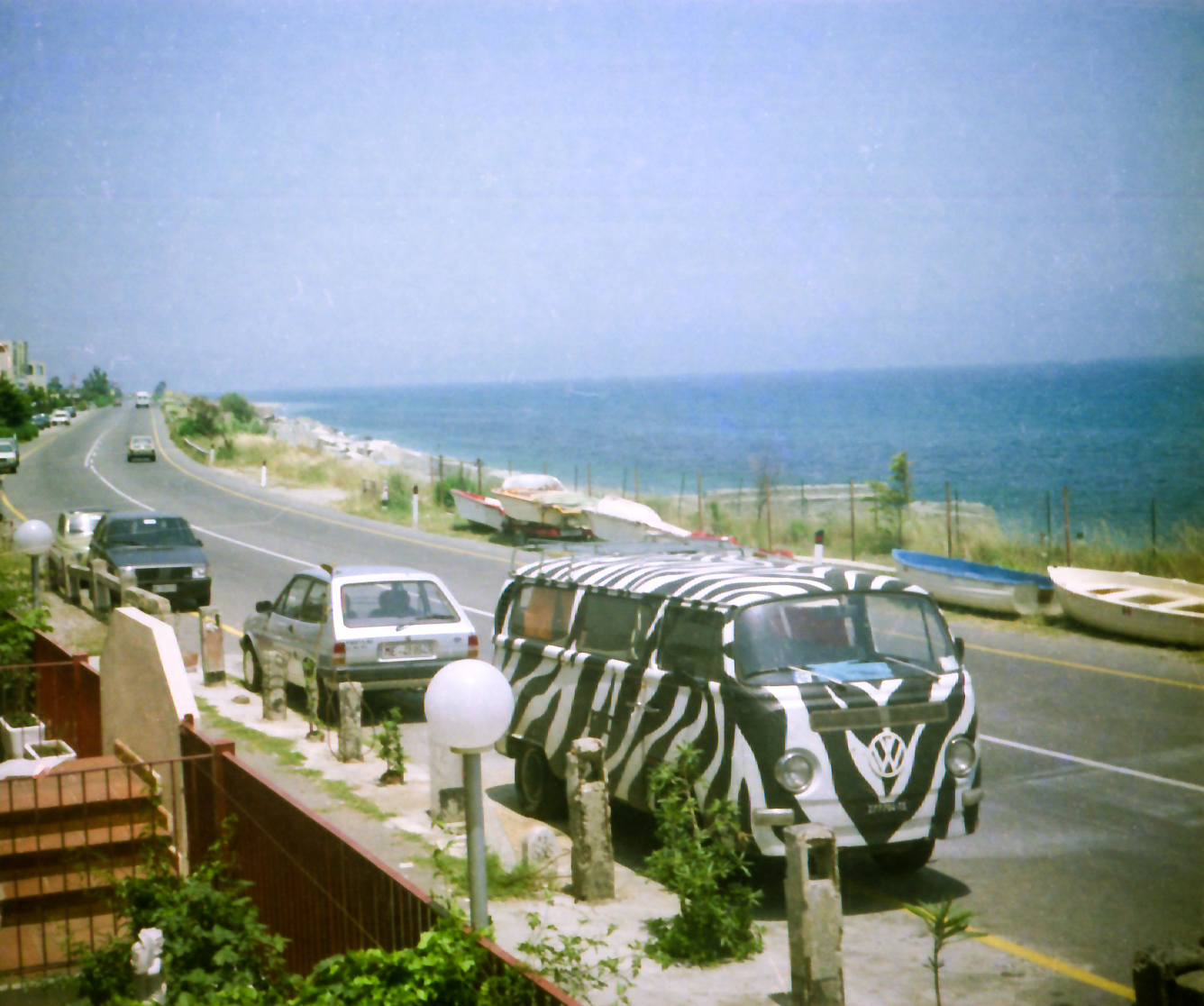
Are you the main songwriter in the band? How do you approach making music?
Yes, I was the main songwriter. Drago later wrote a beautiful tune which appeared on ‘Drive You Mad’ and on ‘Burning,’ and my then girlfriend came up with a little melody that I played on acoustic guitar for one of the songs on the first, eponymous album. But other than that, I wrote all the songs and lyrics. For me, it’s always been and still is either lyrics first and music later, or both the music and the lyrics come to me together. Sometimes in a dream, it’s happened quite often and through the years I learned to always have some sort of small recording device at hand and on my bedside table, you don’t wanna really wake up too much and lose what seemed so logical in your sleep.
With the band, I’d often also come up with a pretty precisely defined drum pattern or groove and a main melody for the bass line, too, and when I didn’t or wherever I had no precise idea I’d leave it to the guys to come up with something, that we’d then refine and modify during rehearsals. We rehearsed a lot, it was truly a joy to play together and to work at original material, not the usual covers.
In 1987 you released ‘Drive You Mad,’ what kind of memories do you have when hearing it again?
I’m actually very proud of that album. And I think most of it still sounds pretty good, even technically, to this day, which is amazing considering the equipment and technology we had at hand was honestly at least a couple of years or more behind what was available to bands in the USA or UK or in nearby Italy. And, aside from a couple of lyrics which are clearly the thoughts and feelings of a young me, I still can agree with and identify with the core concepts of many songs, of the record as a whole. And I think that’s quite a big deal, for a songwriter.
I remember when it got reviewed and praised by NME (or was it Melody Maker?) in the UK, it was right next to a review badly trashing David Lee Roth’s first solo album – he got one star, and we got four, and I thought “Well that’s something for 3 guys from the Adriatic coast,” haha!
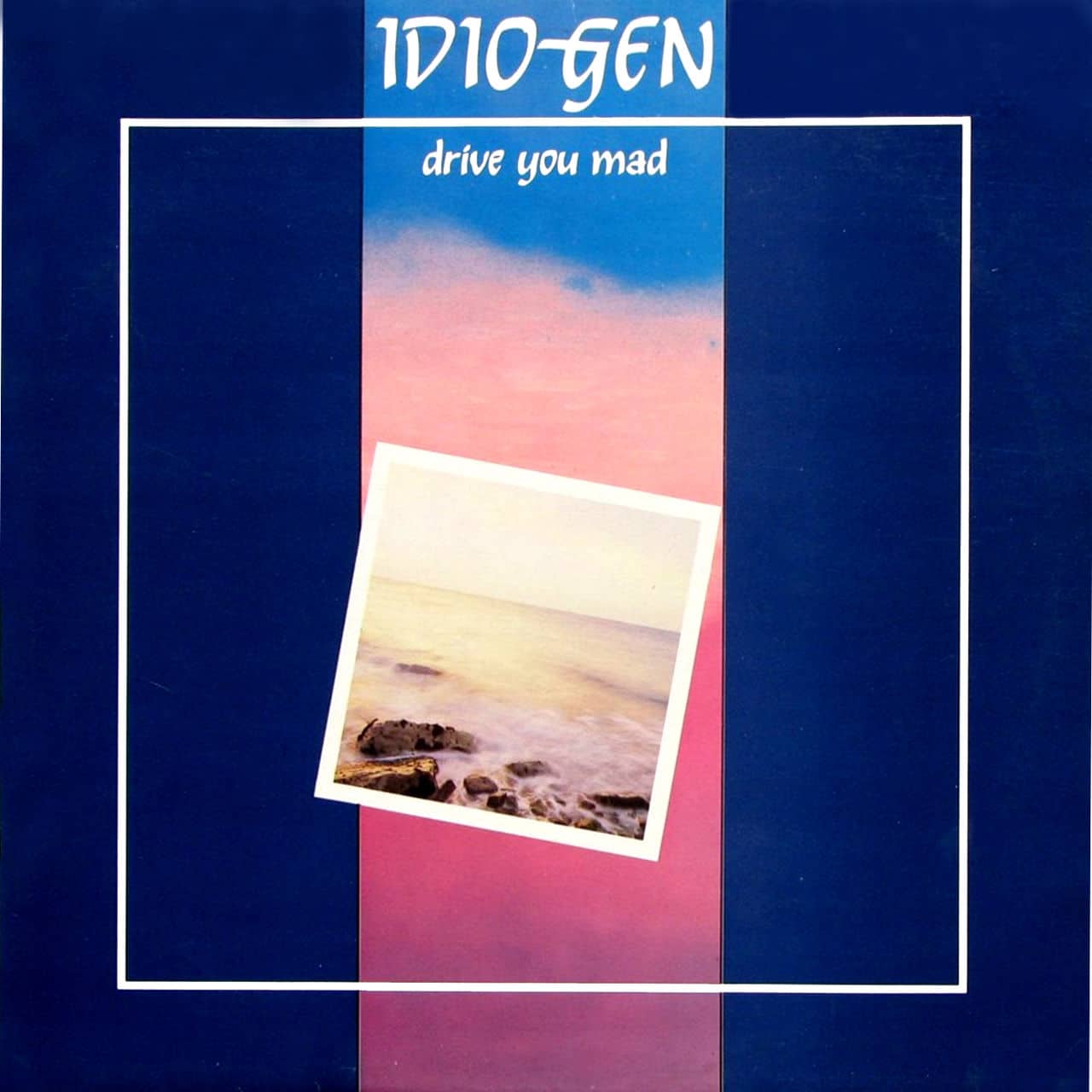
Tell us about the songs on it?
In a way it’s a concept album. It’s not that the songs flow one into another or are meant a s a precise sequence that tells a story, in that sense it’s more polished and so to speak more “pop” than a typical concept album, it’s a collection of very structured individual songs, but there is a common topic that runs through the album and that gave it its title and inspired the cover photo with the unstoppable running water: trying to stop time, in whichever way, will drive you mad. To capture and preserve a moment, to define ourselves by momentary glitter and glory, to want something good to last for eternity or to dwell on something bad, to build monuments or even to wage wars to immortalize and glorify people, ideas, ideologies or historical moments – it all goes to dust sooner or later, and it drives people mad. That’s still the case today, we’re seeing quite a lot of it nowadays, sadly, aren’t we?! There are some songs on the album that are somewhat the pillars of this message, I guess you could call them the standout singles, like ‘Motionless,’ ‘Drive You Mad’ and ‘Ashamed’. These three got the most airplay and were the ones that best represented us and our most developed, mature sound. Also ‘For You,’ the one Drago wrote the music for, and I wrote the lyrics inspired by Roger McGough’s poem “Let Me Die A Youngman’s Death”. Then, there’s one love ballad, called ‘Song,’ with a one-take-only wailing guitar solo of mine and a barely teenage kid from the local music school playing a trembling flute solo, because I wanted the innocence of someone who was very far from a professional player. And there’s ‘Fall’ and ‘Can You See,’ which we recorded live in the studio, zero overdubs, straight to the 2-track stereo master tape, carefully setting up the sound first, and then going wild and letting Igor mix and tame things live to tape, as one would in a concert. That was also about this idea of capturing the moment, plus both those songs included very extended psychedelic, atmospheric improvised parts and a lot of dynamics, from whisper quiet to full on rock. The album opens with ‘Good Morning, Mr. Jones,’ a menacing sounding intro based on pitched down and tape slowed guitars with some spoken lyrics, a cynical appraisal of a boxed-in life on a society where fear of losing a job and many other enforced fears or dogmas dominate one’s life, with little regard for introspection or soul searching.
How many copies were pressed?
Again, I’m not sure. I think 2500, perhaps more? ‘Drive You Mad’ was available all over Yugoslavia and was also properly distributed in Italy by Supporti Fonografici of Milano, so quite a few were shipped and sold there.
Indie LPs were not big sellers back then, but for the standards of the time this one definitely did well
Would you say there’s a certain concept behind your music?
Yes and no. Yes in the case of that album, or of a certain period of my life and of my songwriting, if we’re talking lyrics and concepts actually expressed within the music. No in the sense that there never was a fixed formula or a manifesto to stick to. But perhaps this lack of a formula is, in fact, the concept: to be free to speak up or to shout or to whisper, while creating the sounds, grooves and soundscapes you feel comfortable in, and inspired by, without worrying of whether someone will label them as idiotic or genial.
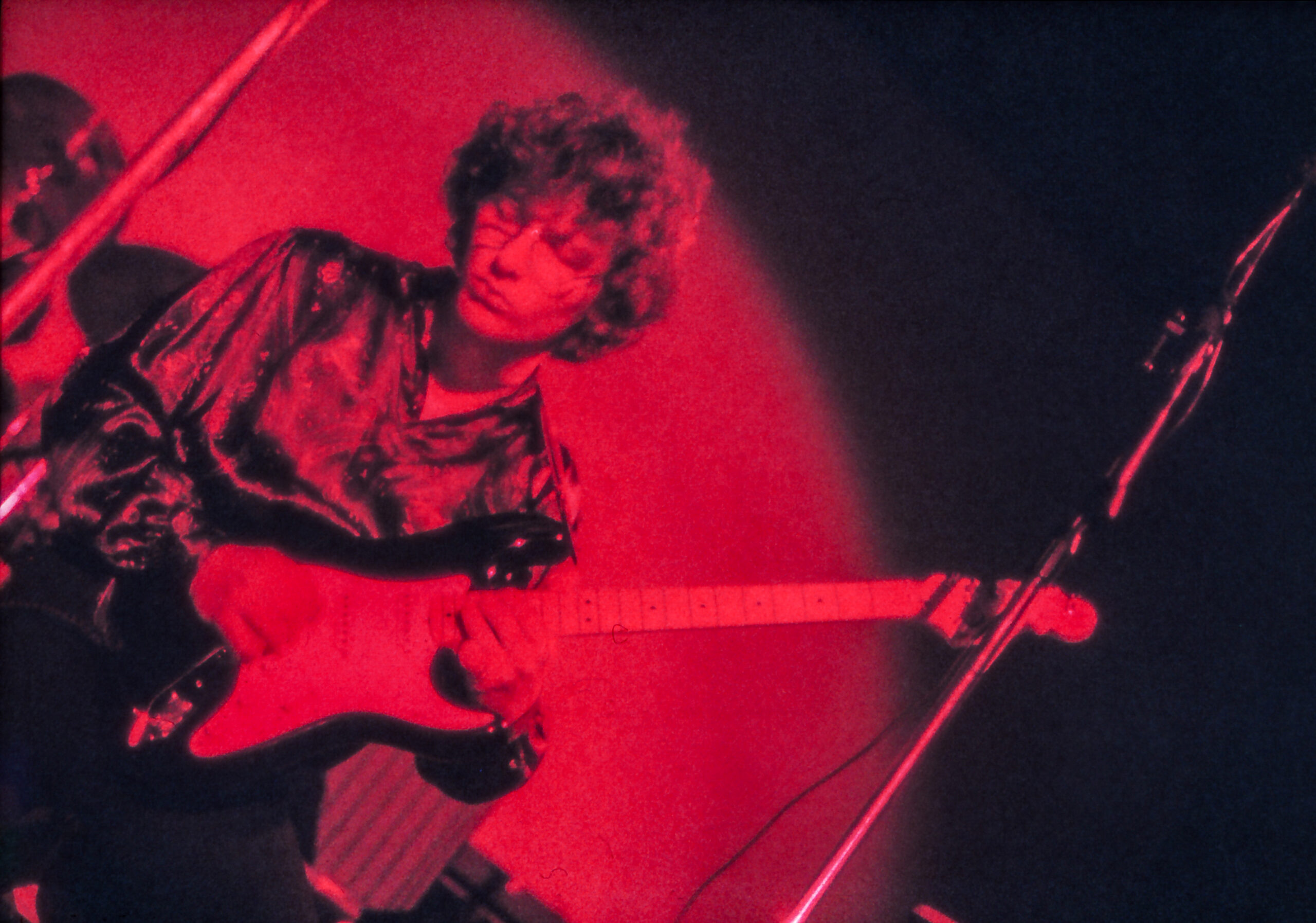
What was the scene like back then? Did you play a lot of shows? Were those mostly in Italy or Slovenia? What are some bands you shared stages with?
It was very different depending on where you went. As I said, for some reason, probably linked to my internationally travelling upbringing and not feeling locally rooted, we reached out a lot, doing what today would be called “networking” – but, of course, back then it wasn’t as easy as emails, mouse clicks or social media posts and messages, it was about first researching magazines for addresses and names and potential contacts, and then photocopying press kits, in the very early days even cyclostyling them on those purple smelly one page press releases, cutting up cardboard boxes to carefully package LPs, spending hours at the post office and spending a ton of money in stamps and international registered mail to physically send stuff around. I’d say we did pretty well at that, Produkcija Slovenija and Boris Furlan were absolutely essential in this aspect.
Our live activity was basically divided into four types. It Is quite easy to obtain local gigs, of which we tried to not play too many, choosing the best situations and locations. The almost unobtainable gigs around Slovenia, because at the time this region of Yugoslavia was very much into a punk-ish, post-punk, electro-dark vibe, so our loud bluesy psychedelic wah wah storytelling seemed either totally out of time or out of place to many, to the point that some intellectual circles in Ljubljana would lecture me on how “guitars are dead, synths are the future”… with hindsight, not really, right?! Then there were our very frequent gigs in Serbia, Bosnia, Croatia – those regions were far more into classic rock, so down there Idiogen did extremely well and played some lovely and important venues, to often very receptive audiences. And lastly, our concerts abroad, mostly (but not only) in Italy, where we really felt we had a major following. We were confusing to the Italian press and radio, because my name is Italian and I speak native Italian, so they often couldn’t grasp how this went along with being this exotic band from “behind the Iron curtain” that sang in English. But they sure liked to talk to us and write about us, maybe even more so because of the lack of a language barrier.
In Yugoslavia we shared stages with bands such as Disciplina Kičme (apparently the pairing of my good friend Koja’s Hendrixian style on bass with mine on guitar seemed like a perfect match to many), Psihomodo Pop, Partibrejkers, Zvjezde, and KUD Idijoti, for whom I also produced and mixed several singles. In Italy we shared stages with bands like Not Moving, Sick Rose, Diaframma, Voxhumus, and the now super-famous Litfiba, with whom we supported an initiative to have indie albums reviewed alongside major label albums, and not in any kind of special “indie” pages of magazines, sometimes even in smaller print, as it inevitably led to making it be perceived as a circumscribed small ghetto. Interestingly, we played a pretty big gig in an outdoors tent in a small town called Fagagna, in north-eastern Italy: a local lad came up to me during soundcheck, a tall guy in jeans with frizzy hairy, and asked if we’d let him play some records before our concert. There was no support band, and the idea of DJing before a concert was still many years away, so it was quite unusual, He assured us he’d just “create an atmosphere,” and he mentioned playing Tangerine Dream and Kraftwerk, so we said yes. Turns out the guy was the late Roberto Concina, a.k.a. Robert Miles, the superstar DJ that had worldwide hits like the instrumental ‘Children’ in 1995! Fagagna was his hometown. I never realized until years later, I did a phone interview with him for radio, when he was already living and working in London, and he said “Andrea, don’t you remember me??” – and the dots connected”!
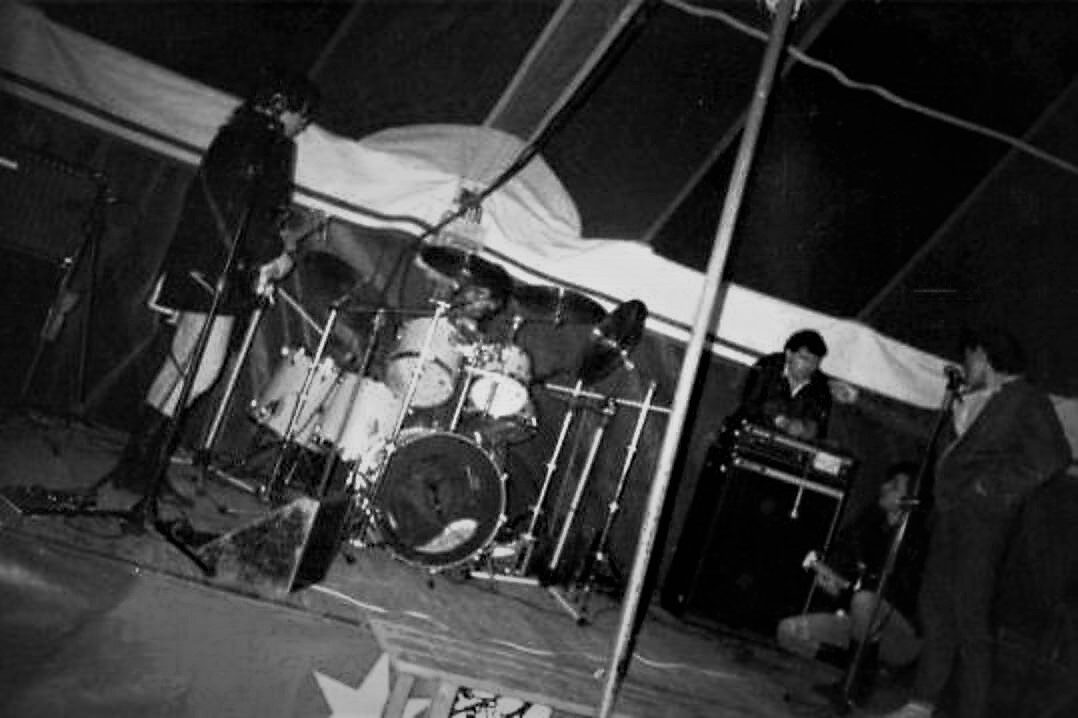
What about the ‘Burning’ EP?
‘Burning’ was the very happy result of an unhappy situation. Toast Records of Torino, Italy, a truly legendary indie label run by Giulio Tedeschi, had expressed interest in releasing a record of ours. But the whole deal and talks had dragged on so much, we’d almost given up on it and were well into the making of ‘Drive You Mad’ when they finally asked me to travel to Torino again and sign a deal. They didn’t want a license release, they wanted something exclusive, and I knew that we’d either have to give up ‘Drive You Mad’ or risk it getting old on a shelf if we paused the proceedings to somehow write and record a whole separate album for them. So, we came up with the compromise solution of postponing the release of ‘Drive You Mad’ by just a couple of months and making an EP for them which would ideally bridge it with the previous album. It featured one song from each, plus two new and unreleased songs exclusively for them, a blues from the live-in-studio sessions, and a brand new song, ‘Burning,’ which I am truly very fond of and proud of to this day.
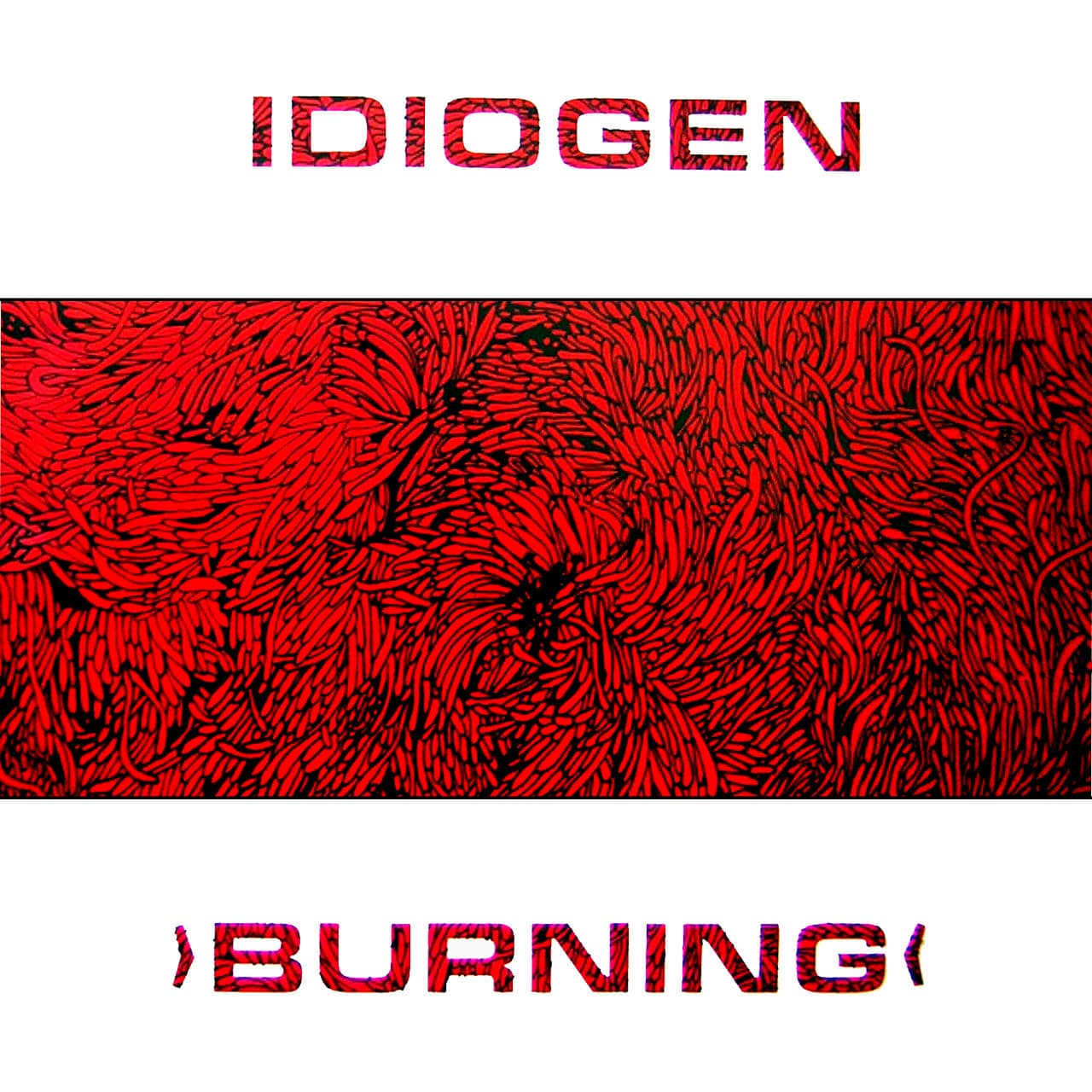
What followed for you and other members after that? When did the band stop playing together?
We stopped playing together in late 1988. It was partly because of the compulsory military service looming over us again, and partly because I felt we were losing the focus we initially had. You know, travelling around together in a van for concerts, living through various situations, makes for a special kind of friendship and bond to happen between band members, but it also highlights some tensions and differences, and it can erode some of the magic that happens when people are not so tightly knit. By becoming better friends, the music became less of a mystery, less of something to wholesomely respect and more something to discuss, which of course you enjoy with your friends… but it strays from the purity of the initial idea and inspiration. And I didn’t like that.
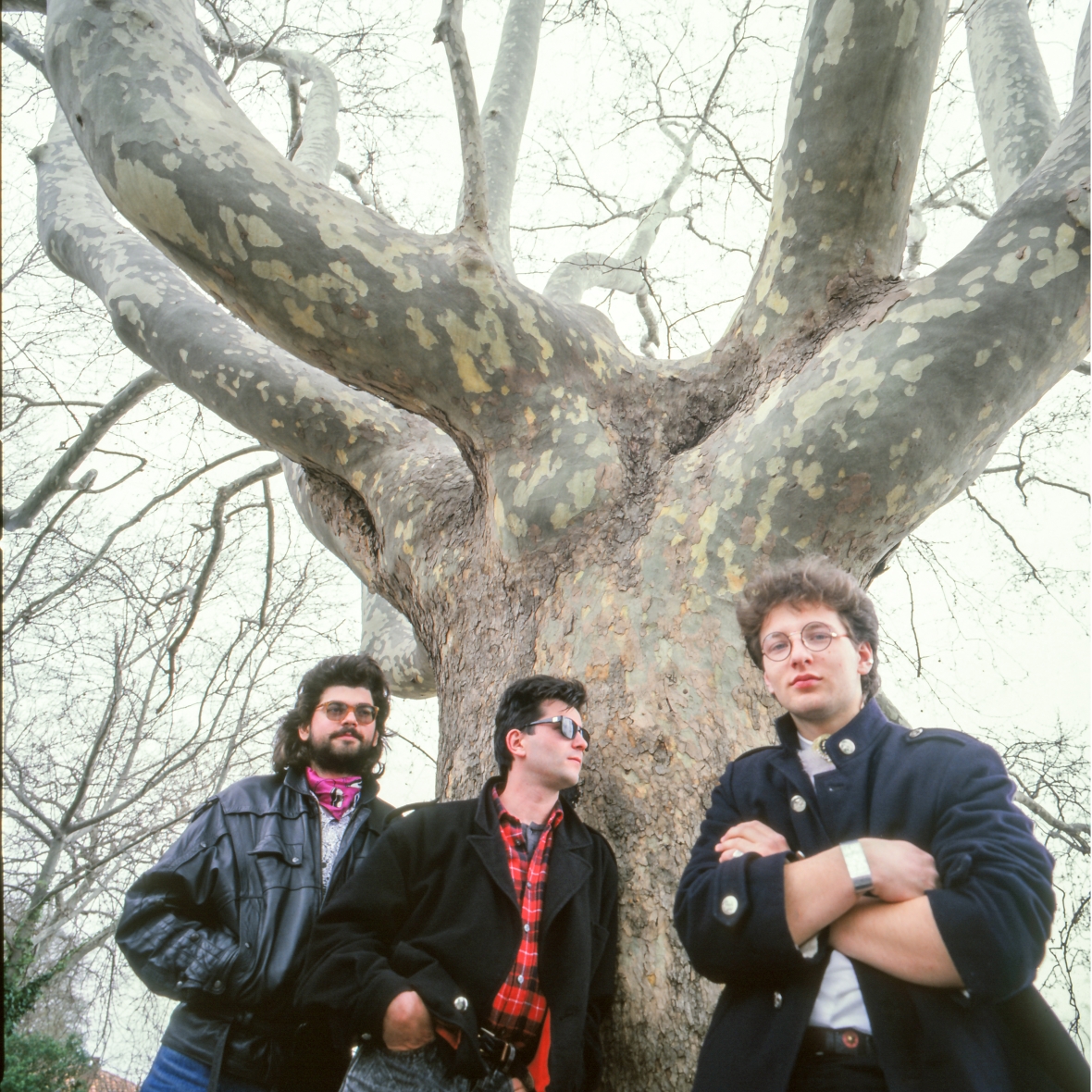
In 1989 I recorded a version of a Syd Barrett song, ‘Gigolo Aunt,’ on my own, playing and programming all the instruments myself, in a studio in Ljubljana owned by legendary Buldoižer keyboard player Borut Činč. It was a way to push myself out of my comfort zone, Boris had been teasing me a lot about this, so I wanted to prove a point. That song remained unreleased, and in some ways is Idiogen’s swansong.
Damjan and Žare, after their army years, continued to play with Zmelkoow, who gradually became extremely successful in Slovenia from the 90s to this very day, and produced their possibly most successful albums. Drago went on to become a very good and respected sound engineer, and Max has kept on playing drums, doing all sorts of stuff from Brazilian music to the neoclassical kitsch pop of Rondò Veneziano but most often playing with many rock bands, and he’s often been a session drummer for projects or productions of mine.
You played on several records by local artists and you are still very active. I would love to hear more about what occupied your life?
I went on to pursue what you could probably call a triple path. Still writing songs and playing guitar, albeit not within a band context, because I guess the songwriting urge, if you have it, is not something one can just shut down. Also, somewhere in 1990 I got asked to do a radio show for Radio Capodistria, the Italian language outlet of Slovenia’s RTV national broadcaster, and it gradually became my “day job.” I’ve been working as a show producer and host and senior music editor for many years now. And finally, I’ve been working as a music producer for other artists, and I’m fortunate to be able to say it’s been a rather successful career. It all started back in the 80s when electro duo Persijski Tepih, from Serbia, asked me to do a definitive mix of a song they were so torn about that they’d done 14 mixes and liked none of them. Having heard my work with my own band they entrusted me to take over. And it’s practically never stopped since then, I’ve been busy every single month of every single year!
I love both the radio job, because it enables me to be in contact and in touch with music from all over the world and with all the trends and sounds, as well as the production job, because it’s a blessing to be there and to be the one to aid and conduct the process of making the magic of music come to life, making something tangible and audible come to exist where there was just silence, and helping other artists give their best, sound at their best. It also allows me to play guitar on some recordings, in a studio environment. Plus, it’s allowed me to be around not just the fine artists I produce, but also to meet, record, collaborate with and even become friends with some other great artists, from Ian Anderson of Jethro Tull to Italian singer-songwriter legends Massimo Bubola, Vinicio Capossela and Bungaro, Slovenian singer-songwriter legend Mef, Dan Lavery of Tonic, blues legends Paul Millns, Norman Beaker, Paolo Bonfanti and Tolo Marton (formerly of Le Orme), the great Mike Peters of The Alarm, punk legends KUD Idijoti and Klopka Za Pionira, Carlos Nuñéz of The Chieftains, and many more.
Still, in a way this all keeps you away from making your own music, you know, the easiest projects to postpone are your own – so sometimes I need to force myself to step away from these other two activities of mine, even though I adore them. It’s a tormented life path, ha!
Do you recall some of the early psych records that you found? Is there any that really impressed you?
The obvious ones must be The Beatles, stuff like ‘Rubber Soul’ and ‘Sgt. Pepper’s Lonely Hearts Club Band’. Iron Butterfly and Vanilla Fudge were very tough LPs to find locally in the 80s, so I hunted them down passionately and listened to them intensely. Yeah, those two were influential for me. I also enjoyed some of the less dark and more jangly psychedelia, like The Byrds or The Small Faces – I mean that flanging effect on ‘Itchycoo Park’… c’mon, irresistibly influential! Even as a kid my older cousin, in Zagreb, Croatia, used to treat me to Pink Floyd, and more melodic stuff that probably bridges psychedelia and prog like The Moody Blues, Procol Harum, or Focus.
Were you ever inspired by the vast numbers of great Italian progressive rock bands from the 70s?
What an excellent question! People usually overlook that entire scene. Well, I can’t say I was aware of some of the earliest stuff, but late 70s and early 80s PFM were a very frequent listen of mine. Their level of musicianship was stellar! Banco Del Mutuo Soccorso was another fantastic band, their whole approach to lyrics, topics, song length and sonic variety is a big lesson in freedom of expression. I liked some phases of Le Orme, too, and maybe not so much the songs but I admired the vocal harmonies weaving of New Trolls. I never could sing like those guys could!
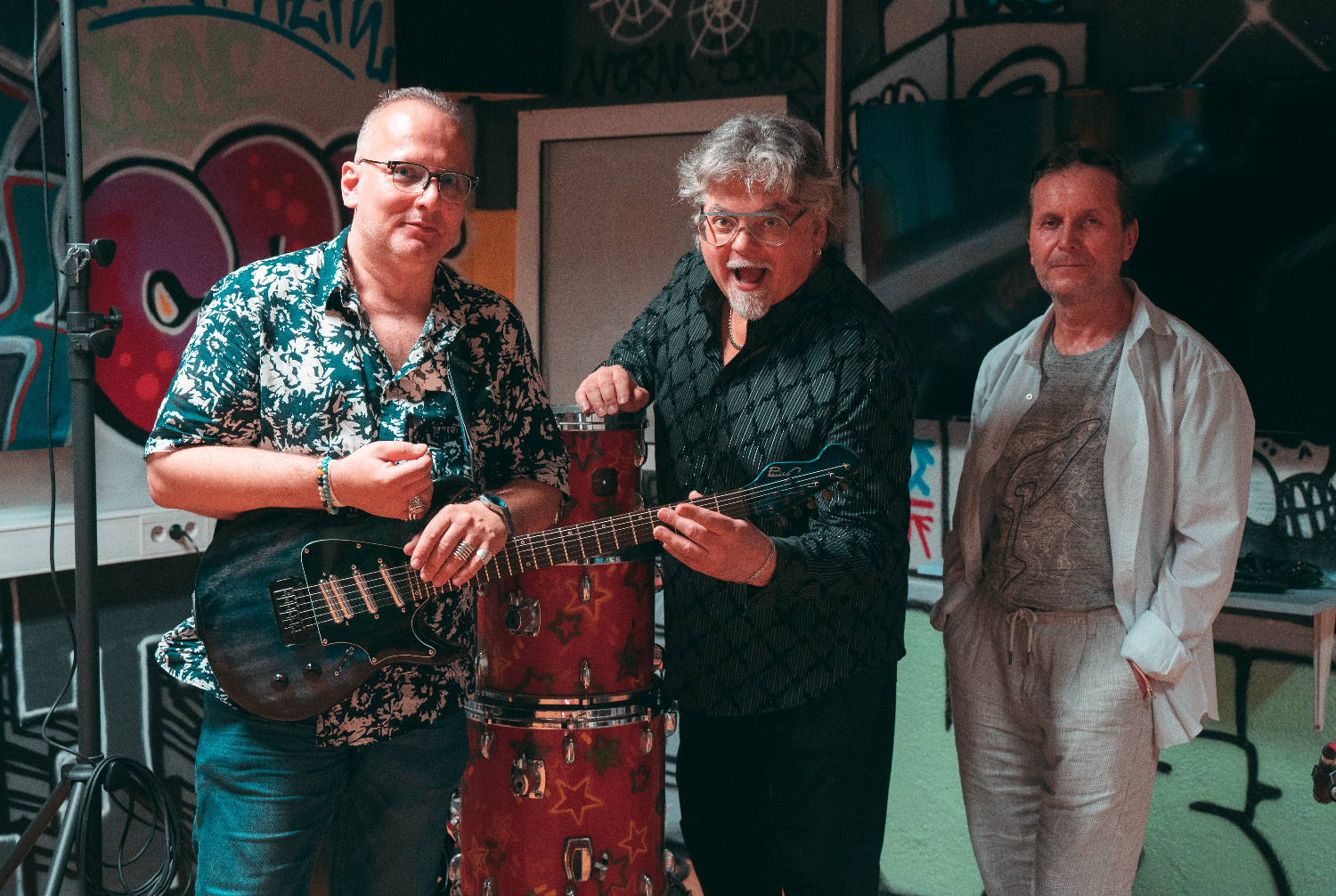
What currently occupies your life?
Idiogen is a big part of my thoughts and free time these days, as I am overseeing the very last touches to some new and unreleased or unfinished Idiogen and post-Idiogen material for this double compilation album that is otherwise all ready to go, with a brand new official website by UK designers Electric Kiwi to accompany it. See, I was always concerned that the band had never entered the digital age, so to speak: all our stuff was on vinyl, and not so many copies were pressed, and whatever is on YouTube has been digitized from those LPs in varying sonic quality through the years by collectors and fans, and I thank them infinitely for doing that, keeping the memory alive. So, I felt it was time to do a more systematic, organized and official approach, also including streaming et cetera. The original master tapes were painstakingly tape-baked, restored and digitized in hi-res by Italy’s best experts, Analog Planet, and I then sent the files to the UK, to Pete Maher, for remastering. Then the whole album sequence gets finally tweaked and optimized by my and 24 Mastering and DaGoose Mastering in the Netherlands. It will be a double CD in a big, Amaray format box, with an extensive booklet and liner notes, and will include a personal download code for the digital files. It was all ready in 2020, but then the pandemic hit and everything stopped. So, while waiting, I broadened the scope of the album to include these post-Idiogen songs of mine, most of which have Max on drums and are in a way the extension and continuation of Idiogen. And some still needed finishing and mixing, quite a lot of work. Plus, for just one never recorded song we played a little before the group disbanded, I reunited the band and we recorded it, as it was meant to be, in 2022. That one will be track 1 on the compilation. Some of the remasters are now slowly appearing on the Idiogen official YouTube channel, as you know, in preparation for the compilation album release.
I’ve been asked about a vinyl release, but that would be a triple or quadruple LP, so I have to see if there will be enough interest for it. I know it may sound blasphemous, but it’s the digital absence of the band that concerned me most at this point, we were no strangers to vinyl.
Also, my producer work is pretty intense right now, I’ve been recording and producing two young Slovenian bands who won a live contest for studio time by the local CMK Youth Cultural Centre, I have a song to finish mixing that I wrote and produced for a good friend, Slovenian old rocker and guitarist Bakan, and I’m talking to you right now from Padova, Italy, where I’ve just finished recording (on analog tape through an analog mixing console in a gorgeous residential studio in a Venetian villa, Prosdocimi Recording!) the last new album track and next single for instrumental space-prog rockers Fish On Mars, that I’ve been producing in all their latest efforts.
Other than that, my beautiful, hyper-intelligent dog that was with me for 16 years just died, and frankly I’m gutted, it’s like losing a huge slice of your family.

Let’s end this interview with some of your favourite albums. Have you found something new lately you would like to recommend to our readers?
Another great question, here… Well, I listen to a lot of stuff for my radio job, too, so the spectrum is pretty wide. I think I can safely and whole-heartedly recommend the new album by The National, a band I like a lot, something in their dark rhythms and Matt’s melancholic baritone singing really appeal to me. Robin Trower’s ‘No More Worlds To Conquer’ is an album with some great topics, as the title already says, and some top notch playing, he’s 78 and as brilliant as ever. The new Yo La Tengo album is pretty damn good, and vital, and apparently unconstricted by commercial concerns. Elder’s ‘Innate Passage’ is a truly excellent album. Oh, and my friend Andrej Kralj, from Italy, just released the fourth chapter of his project, ‘A Day In Venice,’ and it’s a dark, brooding, fascinatingly good album.
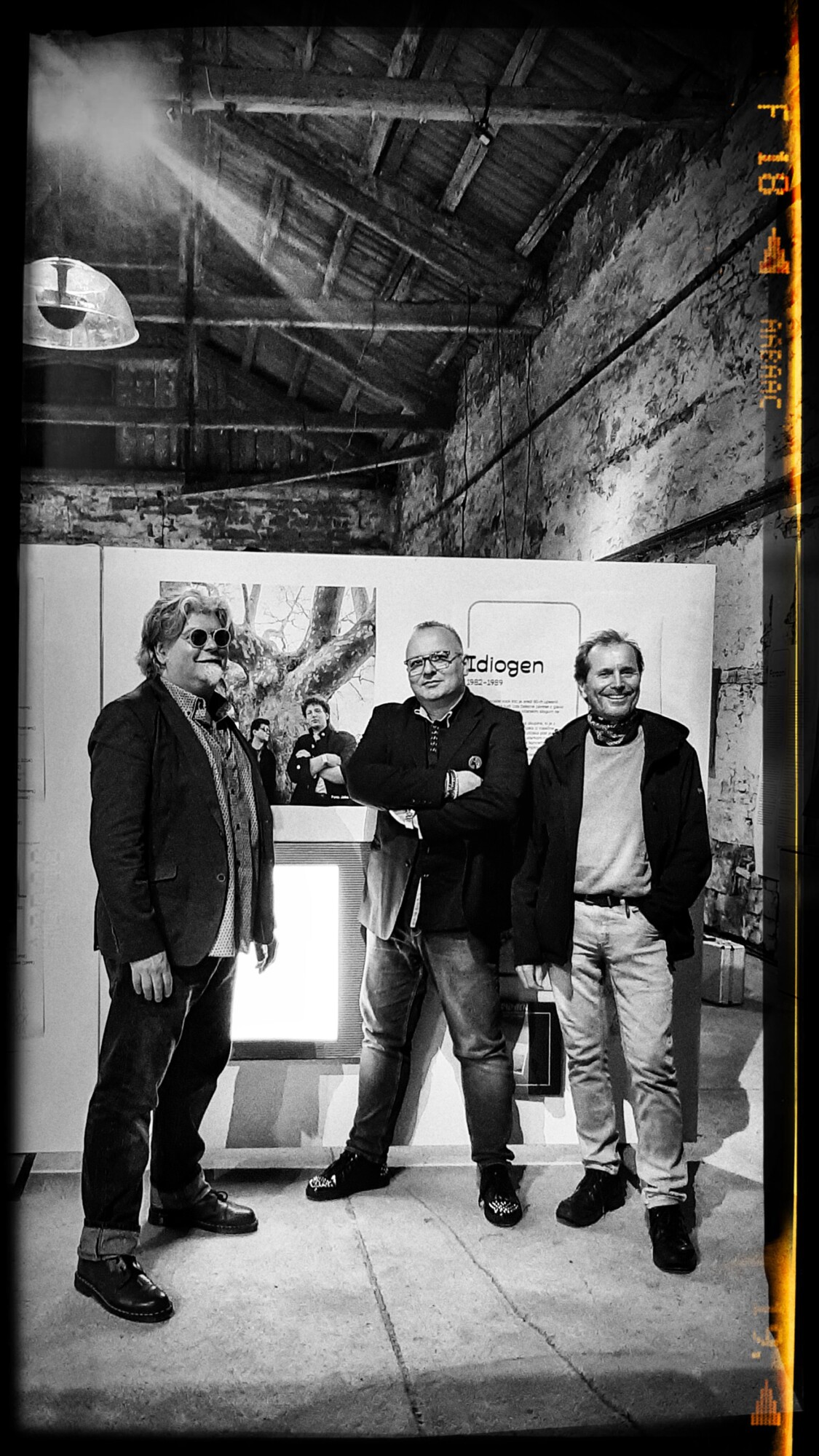
Thank you for taking your time. Last word is yours.
Actually, I’d like to thank you, for all these questions and for pointing a spotlight on Idiogen, and on what I do… and I’d like to thank all your readers and followers for taking the time to go through all these words, and for looking into Idiogen.
Today people like to say that music is “free” or has been freed, but I’m not so sure about that, because music still takes time, effort and finances to make, and the results are now shot out there into the vastity of the age of digital information overflow, where they are free to be overlooked, underappreciated, undiscovered and underpaid – the structure surrounding music making and music releases has been shattered, as if it had only ever been a cage. So, what I do say is that we, as humans and as music lovers and listeners, are the ones who are now more free to search for more music we like and want to support. That’s why ventures such as It’s Psychedelic Baby! Magazine are crucial, precious hubs of information, places where this freedom can be well invested.
Idiogen was the first ever band in former Yugoslavia to release full albums entirely in English – who knows, now for someone somewhere in the world it might be the first band from that time and region that they discover and like.
So, thank you, Klemen.
Klemen Breznikar
Idiogen | June 1985 at Arrigoni, Isola | Photo by Luciano Kleva
Idiogen Instagram / YouTube
Andrea F Instagram / Twitter

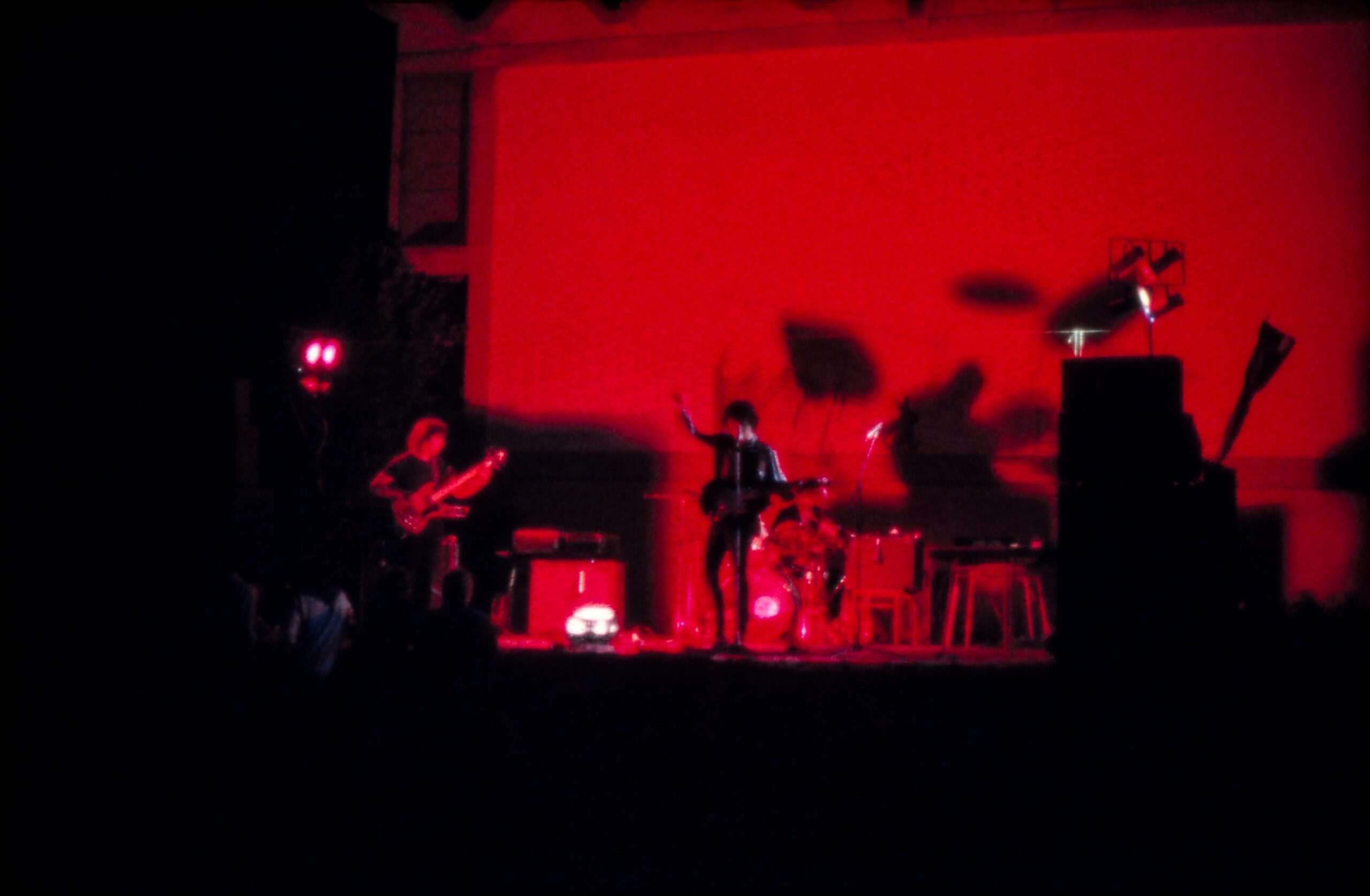

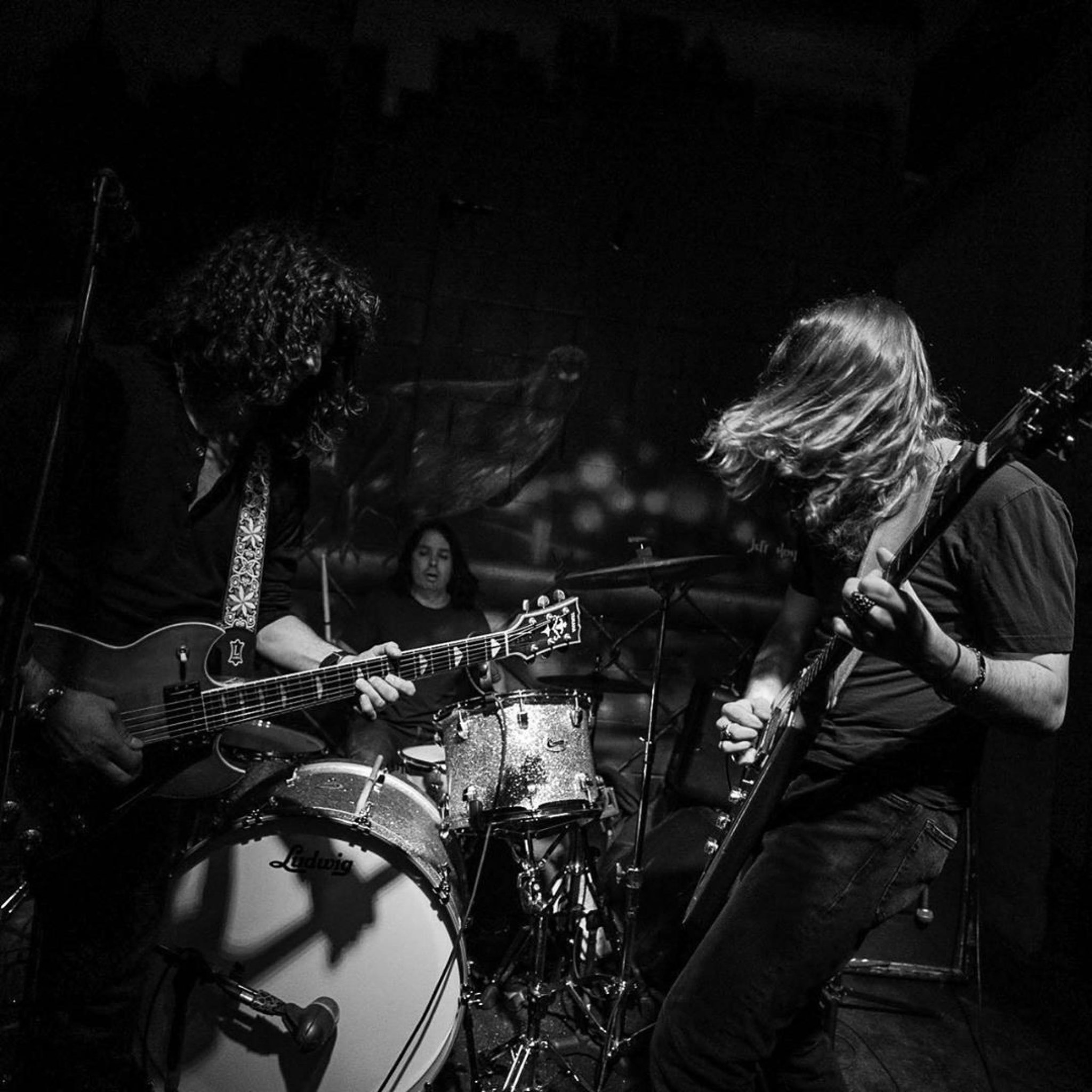
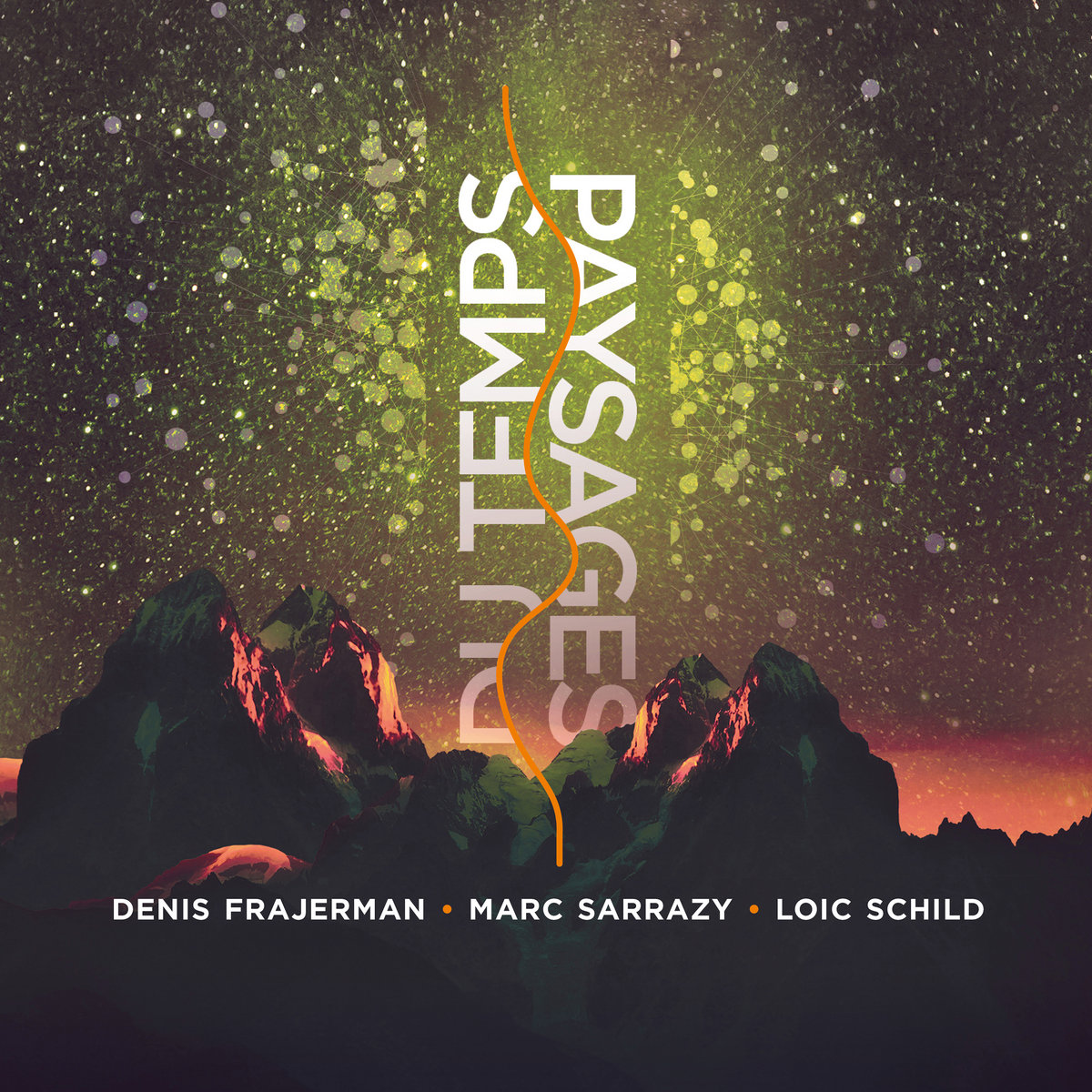
Great interview.Been on a few concerts of Idiogen,big fan 🙂